Late in the evening of Saturday, April 18, 2020, a gunman embarked upon one of the deadliest killing sprees in modern Canadian history.
Thirteen hours later it was over, leaving scars on the rural community of Portapique, N.S., the province and the entire country.
Click here to listen to episodes of 13 Hours: Inside the Nova Scotia Massacre
Twenty-two people lost their lives that weekend. Many more people lost someone they loved.
In Episode 5 of 13 Hours, Injustice Collector, we explore the gunman’s history. We also hear from people who knew the gunman and say they warned police about his violent behaviour and collection of illegal weapons.
Maps
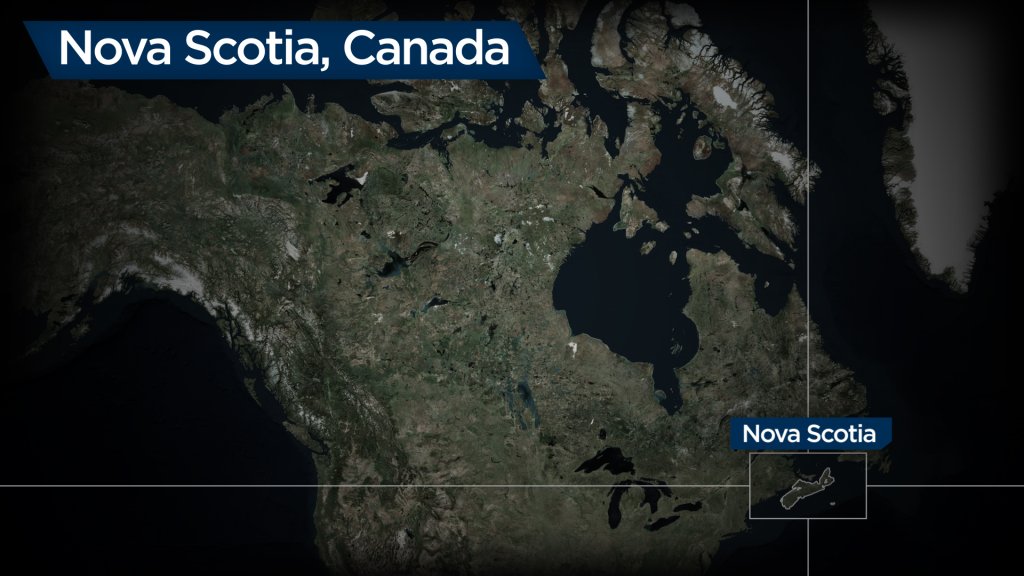
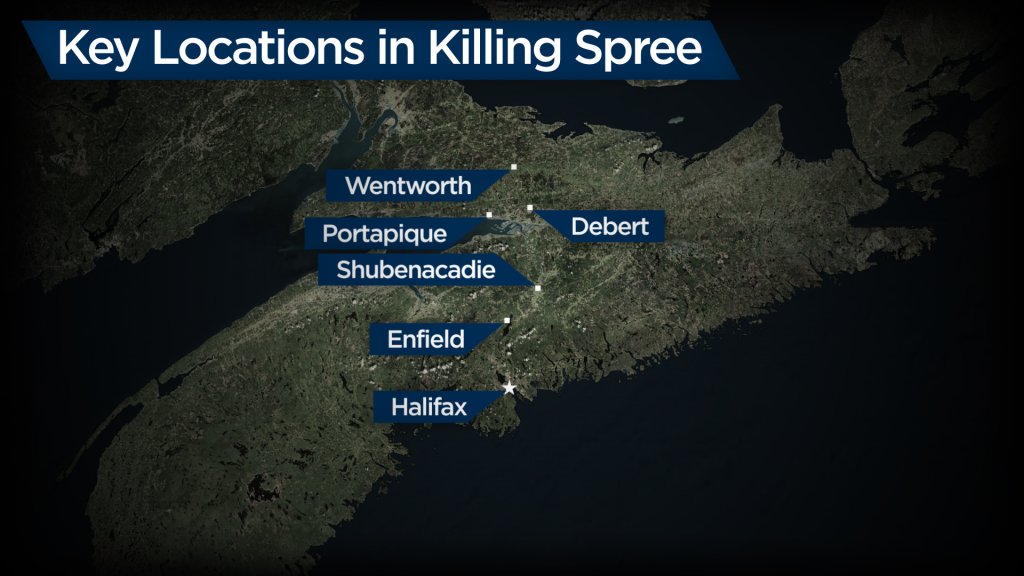
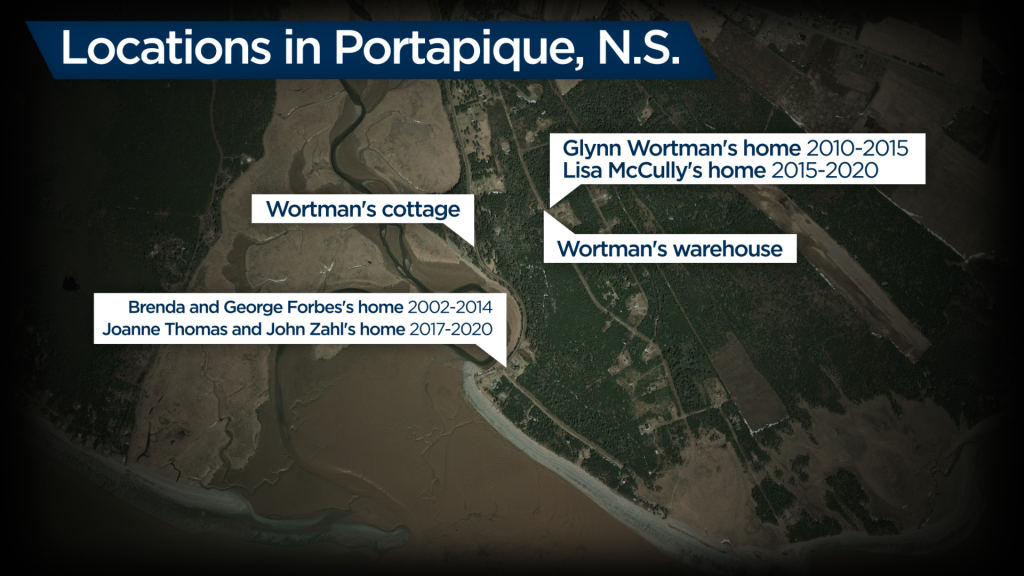
Injustice collector
Gabriel Wortman, the gunman, has been described by police and law enforcement experts as an “injustice collector.” The term refers to someone who has difficulty letting go of or forgiving past wrongs, real or imagined.
On June 4, RCMP Supt. Darren Campbell used this term to describe the gunman. Police have also said he had a lengthy history of disputes with family members, neighbours and strangers.
Other law enforcement experts familiar with the case say it appears the gunman collected grievances.
Michael Arntfield, a criminology professor at Western University and a former police officer, says that while not all injustice collectors go on to commit murder, it’s important to pay attention to early warning signs, including disputes, run-ins with police, fascination with weapons and violence.
James R. Fitzgerald, a retired FBI behavioural analyst, says that based on the details of the case, it’s likely the gunman spent years fixating on the different ways he believed people had wronged him.
Read more:
Nova Scotia gunman was involved in several disputes before shooting, RCMP says
Fitzgerald says this type of thinking can become extremely dangerous, especially when a person has the means to commit mass murder.
History of violence
The gunman had a long history of altercations prior to the April killing spree, according to police.
On April 28, Campbell said that the gunman was involved in a number of property disputes that may have contributed to his later behaviour.
Read more:
Nova Scotia gunman charged with assaulting a 15-year-old boy in 2001
In the fall of 2001, the gunman assaulted a 15-year-old boy outside his denture clinic in Dartmouth, N.S. The violent attack resulted in the victim being hospitalized.
The gunman pleaded guilty to assault in January 2002 and was given a conditional discharge, plus nine months probation, court records show. He was also banned from owning any weapons during that probation period.
The gunman also had a history of property disputes, court records show. These incidents stretched between at least 2004 and 2015.
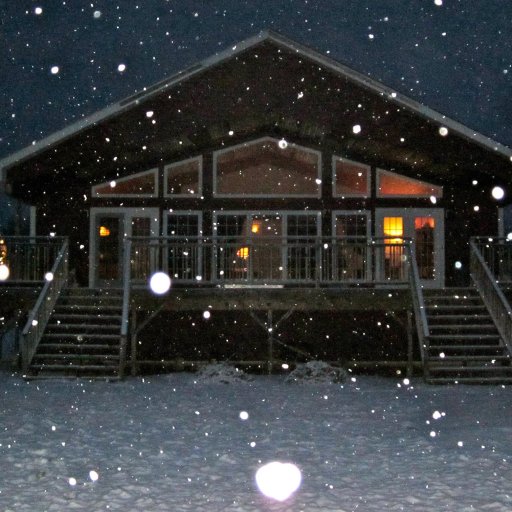
Photo of Glynn Wortman’s former home in Portapique, N.S. This home was later owned by Lisa McCully, one of the victims of the killing spree.
Glynn Wortman / Facebook
In 2010, the gunman lent his uncle Glynn Wortman $165,000 to purchase a property in Portapique. At the time of the purchase, the gunman’s name was also added to the property deed.
Read more:
‘He stole my house’ — Nova Scotia killer had history of dubious financial practices
The following year, Glynn Wortman paid his nephew back. But the gunman refused to take his own name off the property deed over the years, claiming he was still owed money, court documents show.
When Glynn’s home in Portapique was sold in 2015, the issue went to court. A judge ruled that Glynn was the owner of the home and didn’t owe his nephew money from the sale. The pair never spoke again, Glynn said.
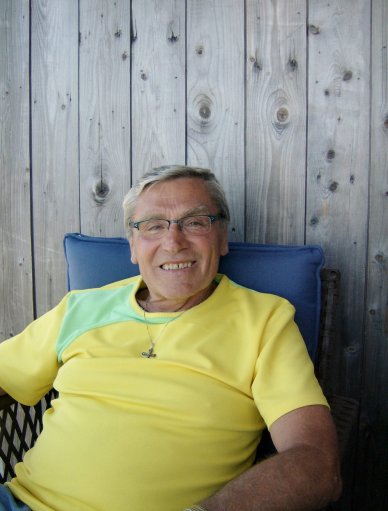
Photo of Glynn Wortman.
Glynn Wortman / Facebook
The gunman also had a dispute with his parents over a property in Portapique, court records show.
According to documents used by police to obtain search warrants for the gunman’s homes and businesses following the killing spree, he threatened to kill his parents in 2010 during the property dispute.
Halifax Regional Police said they investigated the gunman in June 2010 for uttering threats to kill his parents, but there wasn’t enough evidence to get search warrants or lay charges. It’s not clear if these incidents are connected.
Meanwhile, the gunman’s common-law spouse reportedly told police that the gunman violently assaulted his father while on vacation in Cuba.
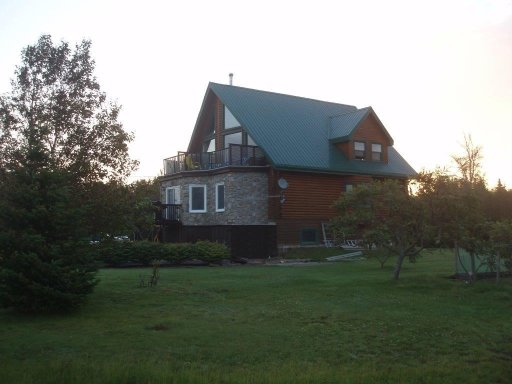
Photo of Brenda and George Forbes’ home in Portapique, N.S. This home was later owned by Joanne Thomas and John Zahl, two of the victims of the gunman’s killing spree. The gunman burned it on April 18.
Brenda Forbes
Several witnesses have also told police that the gunman had a history of domestic violence toward his common-law spouse, court records show.
Brenda Forbes, a former neighbour who left Portapique in 2014 because she was scared of the gunman, says she reported this violence to police in 2013. She also says she told police about his collection of illegal weapons.
Read more:
She witnessed the N.S. mass shooter’s violence. She’s still struggling to be heard
Forbes says that police interviewed her about these allegations, but that nothing was ever done afterward.
The RCMP have said they have no record of Forbes’ complaint.
According to police, the attacks on April 18 and 19 began when the gunman bound and assaulted his partner.
The gunman then went house to house in Portapique, where he killed 13 neighbours and set several homes and vehicles on fire.
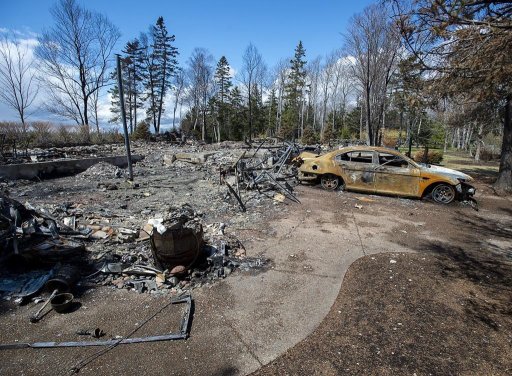
A fire-destroyed property registered to Gabriel Wortman at 200 Portapique Beach Rd. is seen in Portapique, N.S., on Friday, May 8, 2020. THE CANADIAN PRESS/Andrew Vaughan
On Dec. 4, Nova Scotia RCMP charged the gunman’s common-law spouse, 52-year-old Lisa Diana Banfield, along with 64-year-old James Blair Banfield and 60-year-old Brian Brewster, with unlawfully supplying ammunition to the gunman that he used in the attacks. Police allege the three individuals provided the gunman with ammunition between March 17 and April 18.
The RCMP said all three individuals are co-operating with the investigation and that none of them had any prior knowledge of the gunman’s actions on April 18 and 19. None of the allegations have been proven in court.
But advocates for survivors of domestic violence question why police laid charges against the gunman’s common-law spouse given the history of abuse she endured.
Linda MacDonald, a community advocate with Nova Scotia Feminists Fighting Femicide, says she’s concerned the charges could discourage people who experience intimate partner violence from seeking help.
She questions whether laying charges against the gunman’s common-law spouse is in the public interest, especially given that police have said she and the other people charged had no prior knowledge of the gunman’s actions on April 18 and 19.
To subscribe and listen to this and other episodes of 13 Hours: Inside the Nova Scotia Massacre for free, click here.



